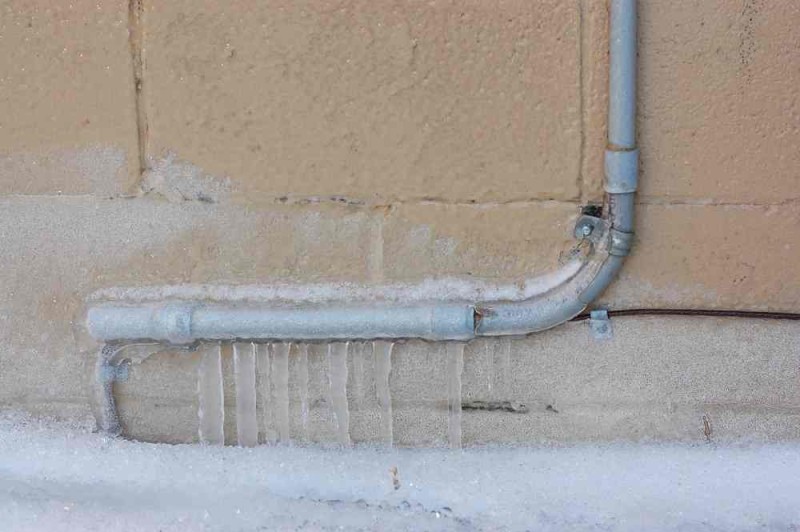Do you want some tricks about How to prevent pipes from freezing? Your water pipes can freeze whenever the temperature drops below 32°F. However, they usually need to be very cold before you have the problem of pipe bursting.
Pipe freezing method is helpful for internal pipe repair and to modify pipes. Frozen pipes in the house cool the outside of the pipe long enough for the liquid inside the pipe to harden.
The frozen fluid isolates part of the line so the occupation should be possible quicker. Low temperatures can cause water lines to freeze. Therefore we need pipe freeze protection.
The cold pipe creates great pressure inside the pipe and can cause it to burst and cause serious flooding, especially if no one nearby can turn off the water supply. In this article, you may learn how to keep pipes from freezing?
Different Ways To Melt Frozen Pipes
Here's how to prevent pipes from freezing?
- Turn on the thermostat at home. High temperatures can help dissolve any pipes within walls or creep areas. It can even harm the internal pipe coating of the pipes.
- If necessary (and possible), cut part of the wall to enter the pipes. Utilize any of the similar strategies to liquefy the frozen lines that show up.
- On the off chance that you don't approach frozen pipes or can't track down a frozen region in your pipeline, it's ideal to call an authorized handyman to assist you with the cycle. Ice lines can represent a possible risk if not liquefied as expected.
Shut Off the Water Supply
If there is no water inside to expand, your pipes will not burst. As a result, it's a good idea to turn off the water supply to any pipes leading to an outside faucet and drain all the water.
This would include the following:
- Sprinkler system
- Pools and Spas
- Garden Hoses
If the weather gets too hot, you may want to drain the water from any appliance that supplies water, such as your water heater or refrigerator. This is especially true if they are in a garage or basement.
Leave The Faucets Running for A While
At any of your faucet-provided faucets, letting cold water drip from the tap can help prevent colds. At the point when water streams, even modest quantities of water, the consistent progression of water keeps pipes from freezing in any case.
Remove External Faucets
Be sure to turn off and turn off all external faucets. Ideally, protect them with faucet covers during the winter months. You may also want to cut off the garden plumbing and turn off the water in the pipes leading to outside faucets.
Keep A Sturdy Thermostat
Attempt to keep your indoor regulator at an agreeable temperature that works constantly. Whenever your lines feel cold, they are bound to freeze. The equivalent goes for your indoor regulator if you intend to overwinter. Keep the house temperature underneath 55°F.
Seal Cracks
Spend some time checking their location and patch or seal any cracks that might allow cold air to get through. Take special care with areas where pipes run from the inside to the outside of the house, such as water pipes.
Keep The Garage Door Closed
If you have water supply lines introduced in the carport, keep the carport entryway shut as regularly as could be expected. This will likewise assist with keeping the hotness inside the house and keep your warming bills from going up.
Prevention of Frozen Pipes While They Are Not
If you plan to spend the winter in another place, do not forget to put some winter prevention in your house. Gladly, here are some tips on how to prevent pipes from freezing? Before you leave, take steps to avoid plumbing, such as:
Set the thermostat: Leave the thermostat below 55°F and change the batteries in your thermostat to make sure it stays on while you're away.
Ask for help: Get a friend or neighbor to check your house and make sure it's warm enough to keep it from freezing.
Shut off the water: Shut off and disconnect the water system. Keep in mind that your fire protection and sprinkler system may not work when you turn off the water supply, so take safety precautions there too.
FAQs
What Is the Best Way to Keep The Water Supply Frozen?
If it is very cold outside, let the cold water drip from the faucet provided by the pipes. The flow of water in the pipe, even when flowing, helps prevent pipes from freezing.
Why Is It Important to Protect Water Pipes from The Cold?
In addition to performing regular winter home care, plumbing is important. Even a small crack in the pipe can spew out hundreds of gallons of water and cause flooding, damage to your furnace, and serious structural damage. It also reveals the existing strength of the mold.
What Do You Wrap Around Pipes to Keep Them from Freezing?
Simply take old towels or towels and wrap them around pipes, faucets, or other brightly colored areas that you think might be frozen. Make sure it's securely fastened and won't loosen during storms. The best option is to wrap in a towel.
Conclusion
Having the option to keep pipes from freezing in your home and nursery is important for the fight. If you're home when it gets chilly, it's likewise smart to take a look at your lines. This incorporates all fixtures inside and outside your home.
Divert them on occasion and make sure that the water pressure is working appropriately. This should be the principal thing you do in the first part of the day and the final thing you can do before you hit the sack. We’ve discussed everything that you need to know about How to prevent pipes from freezing?
For Home Improvement Write For Us Category You can visit the hyperlink and submit your blog.









